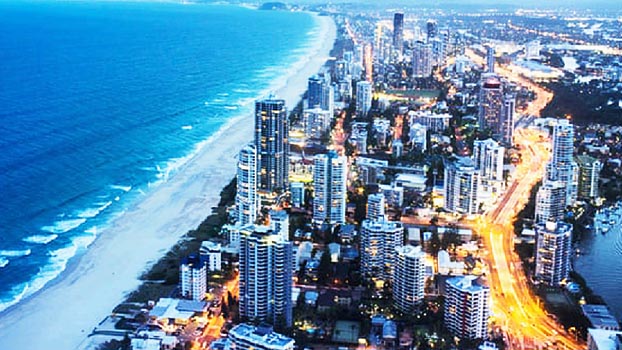Australian hotels face ruin on COVID-19 impact

Australian tourism bosses have warned that hotels could be forced out of business if the coronavirus outbreak continues to severely restrict visitor numbers. Hotels in Cairns and the Gold Coast – both destinations supported by large numbers of visitors from China, South Korea and Japan – are advertising rooms at half the normal tariff this week. Heavy discounts are also on offer in major cities, though city markets are better insulated from the loss of an estimated 150,000 Chinese tourists who would otherwise be in Australia, report agencies.
The chief executive of Tourism Accommodation Australia, Michael Johnson, said: “It would be fair to say we’re currently in this hole, but we don’t know how deep this hole is. I would say there’s certainly hotels and properties in locations that are suffering that may find themselves [facing closure] because the funds just aren’t available.
“Cash-flow is king. There are hotels in bushfire-affected areas that have been losing money for four months in a row.” Johnson said that even though Sydney was trading relatively well, the city was probably 10 percent down in terms of both occupancy and average room rates in February. Regional destinations were at greater risk, report agencies. In Cairns, the tourism industry estimates losses could total $100m by the end of the month. The worst-case scenario is also the loss of about 1,800 local jobs.
Of all Australian destinations, Cairns and far north Queensland face a unique risk. The area is heavily reliant on the usual stream of Asian visitors coming to see the Great Barrier Reef and the tropical rainforests. Because Cairns is remote, it cannot pivot as quickly or easily to attract more domestic travellers. The chief executive of Tropical North Queensland Tourism, Mark Olsen, said the industry had “never faced a tougher time” in Cairns and the reef. “There will be long-term effects. Even coming in to 2020 … we’ve seen a significant reduction in our air-seat capacity [and] the bushfire crisis driving down visitation from long-haul markets.”
Johnson said tourism markets were now reliant on domestic travellers to keep businesses afloat. “There is some fairly good discounting going on. Domestic travel is what will effectively get us through this crisis,” he said. “These hotels really do need Australians to support them and get up there and have a holiday.”
He said governments would ultimately have to provide an assistance package for businesses in such “exceptional times”. The prime minister told reporters on Tuesday the government was developing a targeted, measured and scalable economic response plan.
“The Treasury is working closely together with the other relevant agencies of government to address the boost that we believe will be necessary, which I will have more to say about once we have worked through the details of that plan,” Scott Morrison said. “It will be targeted on the real diagnosis of the economic issue we are looking to confront here. “We will ensure that we do not make the same mistakes of previous stimulus measures that have been put in place. There is a lot of learning from what happened last time.”




